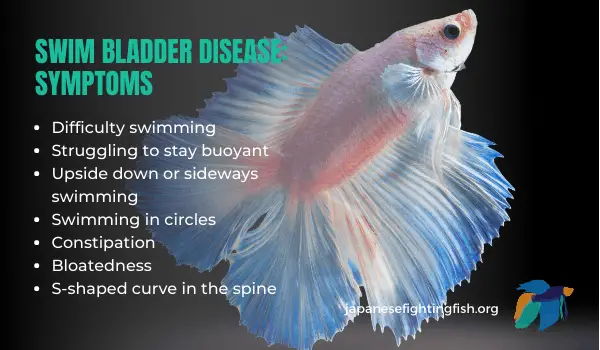Betta fish are a popular choice for pet owners due to their vibrant colors and ease of care. However, it is not uncommon for owners to become concerned when their betta fish suddenly sinks to the bottom of the tank and appears lethargic.
There are several possible causes for this behavior, including water quality issues, illness, and stress. In this article, we will explore the potential causes of a betta fish sinking to the bottom and provide tips for treatment and prevention.

Possible article:
Betta Fish Sinks to Bottom: Possible Causes and Treatment
If you notice your betta fish sinking to the bottom of its tank and staying there, it could be a sign of a health problem. While bettas are hardy and resilient fish, they can still suffer from various diseases and conditions that affect their buoyancy, appetite, energy, and overall well-being. In this article, we will explore some of the possible causes of betta fish sinking to the bottom and suggest some treatments that may help them recover.
Water Quality
The most common cause of betta fish sinking to the bottom is poor water quality. Betta fish are tropical fish that require warm, clean, and oxygenated water to thrive. If the water temperature is too low, too high, or fluctuating, it can stress out the fish and make them lethargic. If the water is dirty, cloudy, or contaminated with chemicals, it can irritate the fish’s skin, gills, and digestive system, and make them prone to infections. If the water lacks oxygen, it can suffocate the fish and affect their ability to swim.
To prevent and treat water quality issues, you should:
– Use a thermometer and a heater to maintain the water temperature between 78 and 82 degrees Fahrenheit.
– Use a filter and perform regular water changes to remove debris, waste, and harmful substances.
– Use a water conditioner and test the water parameters (pH, ammonia, nitrite, nitrate) regularly to ensure they are within the safe range.
– Avoid overfeeding and remove uneaten food promptly to avoid polluting the water.
Fungal Infection
Another possible cause of betta fish sinking to the bottom is a fungal infection. Fungal infections can occur when the fish’s immune system is weak or when the water quality is poor. Fungal infections can manifest as white or gray patches on the fish’s body, fins, or eyes, and can cause bloating, lethargy, and loss of appetite. Fungal infections can be treated with antifungal medication, which can be added to the water or applied topically to the affected areas.
To prevent and treat fungal infections, you should:
– Maintain good water quality as described above.
– Isolate the infected fish and treat it in a separate tank to avoid spreading the infection.
– Follow the instructions on the medication carefully and monitor the fish for any adverse reactions.
– Avoid using salt or other remedies that may harm the fish or the beneficial bacteria in the tank.
Constipation
A less serious but still possible cause of betta fish sinking to the bottom is constipation. Betta fish are carnivorous and require a high-protein diet, but they can also overeat or eat too much fiber, which can lead to digestive problems. Constipation can cause the fish to become bloated, lethargic, and unable to swim properly. Constipation can be treated by fasting the fish for a day or two and then feeding them a small amount of boiled, peeled, and mashed peas, which can help stimulate their digestion.
To prevent and treat constipation, you should:
– Feed the fish a balanced and varied diet of high-quality pellets, flakes, and frozen or live food.
– Avoid overfeeding and feed the fish only what they can eat in a few minutes.
– Monitor the fish’s behavior and appetite and adjust the feeding schedule and amount accordingly.
– Consult a veterinarian or an experienced betta keeper if the constipation persists or worsens.
Other Causes
Other possible causes of betta fish sinking to the bottom include:
– Swim bladder disorder, which can affect the fish’s ability to regulate its buoyancy and orientation. Swim bladder disorder can be caused by genetic defects, bacterial infections, or physical injuries. Swim bladder disorder can be treated by adjusting the water level, adding aquarium salt, or using medication.
– Parasitic infection, which can affect the fish’s skin, fins, or internal organs. Parasitic infections can be caused by protozoa, worms, or crustaceans. Parasitic infections can be treated with medication, but prevention is key.
– Stress, which can be caused by various factors such as overcrowding, aggression, or sudden changes in the environment. Stress can weaken the fish’s immune system and make them susceptible to diseases and disorders. To minimize stress, you should provide your betta fish with a suitable tank, hideouts, plants, and companions (if compatible), and avoid sudden changes in the water or the decor.
Conclusion
In conclusion, betta fish sinking to the bottom can be a sign of various health problems, but most of them can be prevented and treated with proper care and attention. By maintaining good water quality, feeding a balanced and varied diet, monitoring the fish’s behavior and appearance, and seeking professional advice when needed, you can help your betta fish live a long and happy life. Remember, betta fish are not just decorative objects, but living beings that deserve respect, care, and love.
Frequently Asked Questions
Betta fish are a popular choice for aquarium enthusiasts. However, sometimes these fish may sink to the bottom of the tank, which can be a cause for concern. Here are some frequently asked questions about this issue and their answers:
What are the possible causes of a betta fish sinking to the bottom of the tank?
There could be a number of reasons why a betta fish is sinking to the bottom of the tank. One possibility is that the fish is suffering from swim bladder disease. This can be caused by overfeeding, constipation, or poor water quality. Another possibility is that the fish is experiencing stress due to changes in its environment, such as fluctuations in temperature or water chemistry. It could also be due to a lack of oxygen in the water, which can occur if the tank is overcrowded or if the filter is not functioning properly.
How can I tell if my betta fish is suffering from swim bladder disease?
If your betta fish is suffering from swim bladder disease, you may notice that it is having difficulty swimming or staying afloat. The fish may appear to be struggling to reach the surface of the water or may be swimming awkwardly. You may also notice that the fish is bloated or has a swollen abdomen. If you suspect that your betta fish is suffering from swim bladder disease, it is important to take action quickly to prevent further complications.
What can I do to treat my betta fish if it is sinking to the bottom of the tank?
The treatment for a betta fish that is sinking to the bottom of the tank will depend on the underlying cause of the problem. If the fish is suffering from swim bladder disease, you may need to adjust its diet or change the water in the tank to improve water quality. You may also need to provide the fish with a more comfortable environment by adjusting the water temperature or reducing the amount of light in the tank. In some cases, medication may be necessary to treat the underlying condition.
How can I prevent my betta fish from sinking to the bottom of the tank?
To prevent your betta fish from sinking to the bottom of the tank, it is important to maintain a clean and comfortable environment for the fish. This means regularly changing the water in the tank and ensuring that the temperature and water chemistry are appropriate for the fish. You should also avoid overfeeding your betta fish and make sure that the tank is not overcrowded. Providing your fish with plenty of hiding places and a variety of plants and decorations can also help to reduce stress and prevent the fish from sinking to the bottom of the tank.
When should I seek professional help for my betta fish?
If your betta fish is not responding to home treatment or if you notice any other concerning symptoms, such as lethargy, loss of appetite, or abnormal behavior, you should seek professional help from a veterinarian or a qualified aquarium specialist. These professionals can help to diagnose the underlying cause of the problem and provide you with appropriate treatment options to help your betta fish recover.

HOW TO TREAT A BETTA WITH SWIM BLADDER DISEASE
In conclusion, it is important to understand that there are several possible causes for a betta fish sinking to the bottom of the tank. It could be due to swim bladder disease, overfeeding, or poor water quality. The good news is that with proper treatment and care, your betta fish can make a full recovery and return to its healthy, active self.
If you suspect that your betta fish is suffering from swim bladder disease, it is important to consult with a veterinarian or experienced fish keeper for proper diagnosis and treatment. In the meantime, you can help your betta fish by adjusting its diet and ensuring that the water in its tank is clean and properly filtered.
Remember, prevention is key when it comes to keeping your betta fish healthy and happy. Regular water changes, a balanced diet, and proper tank maintenance can go a long way in preventing swim bladder disease and other health issues. With a little bit of effort and care, you can enjoy the beauty and companionship of your betta fish for years to come.
